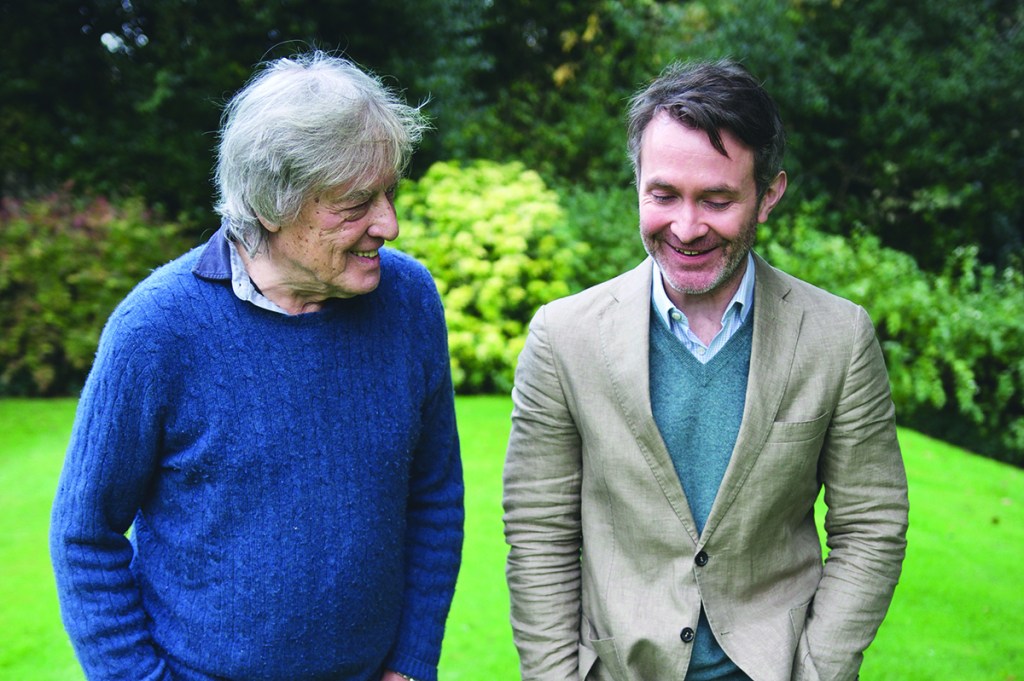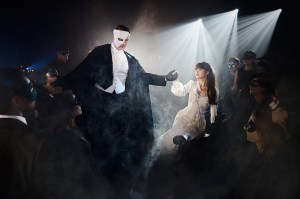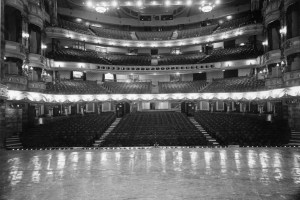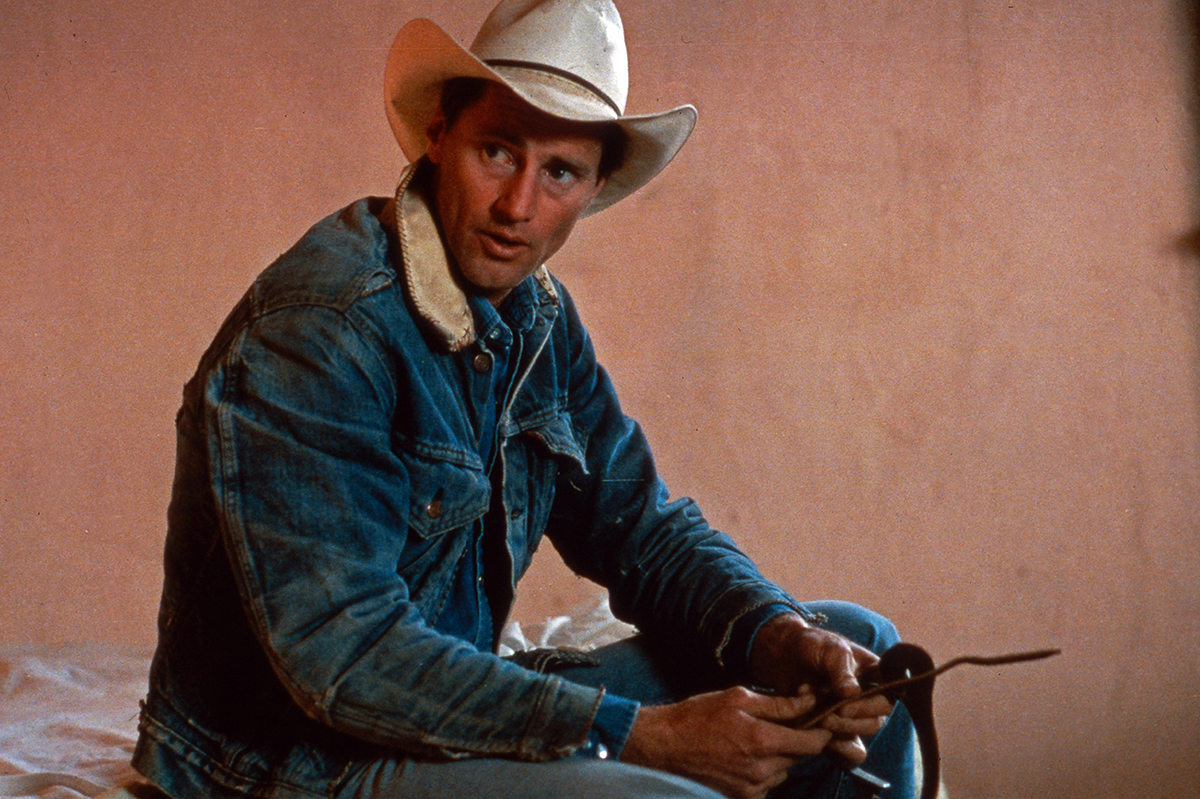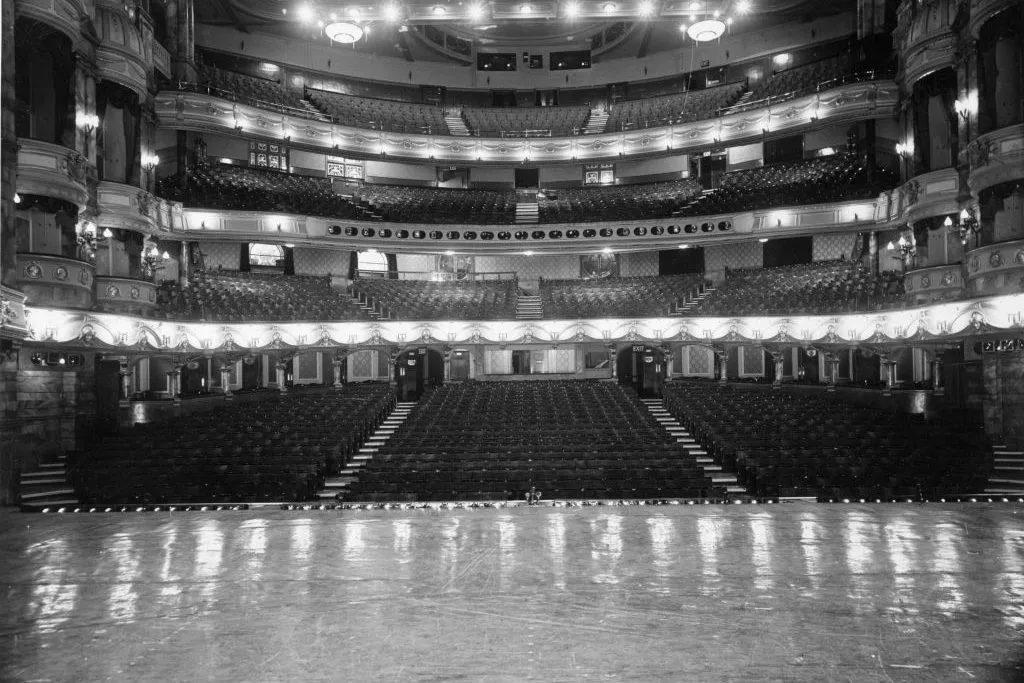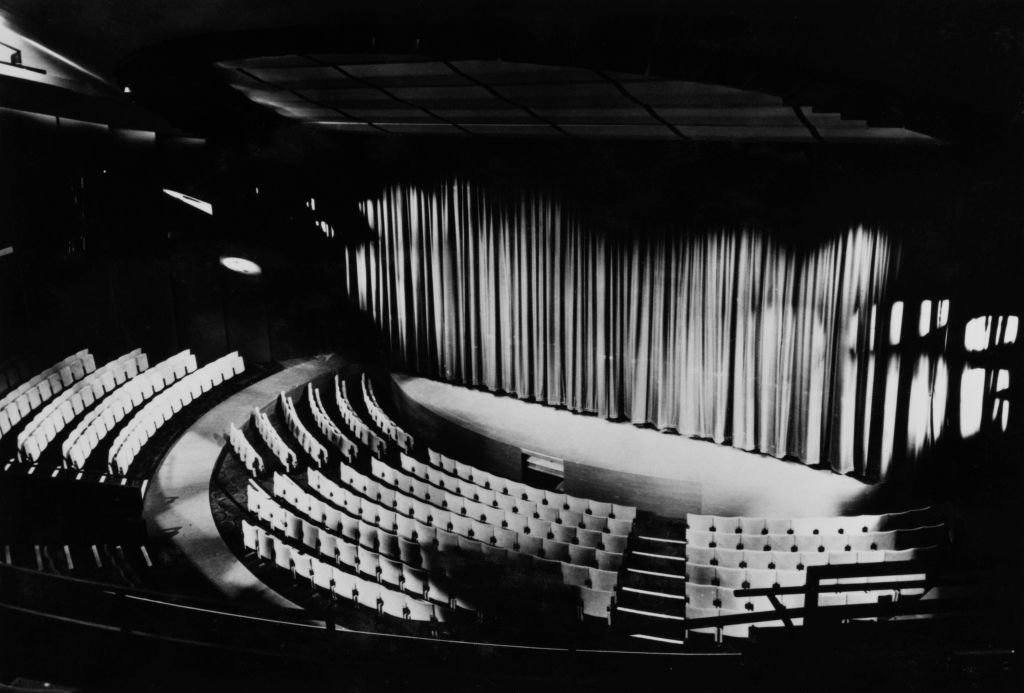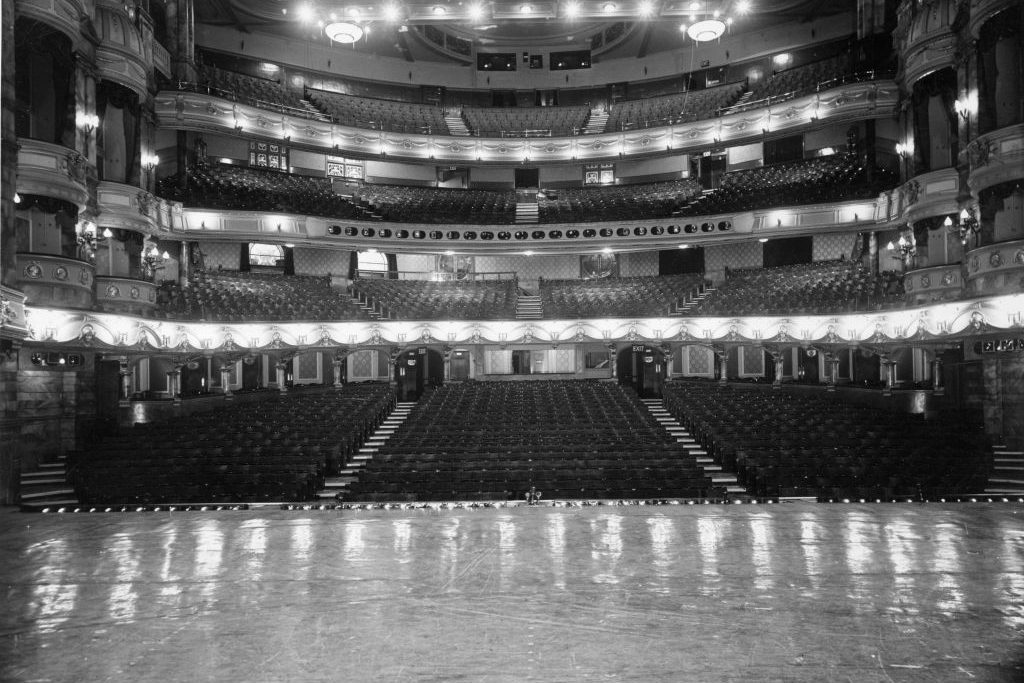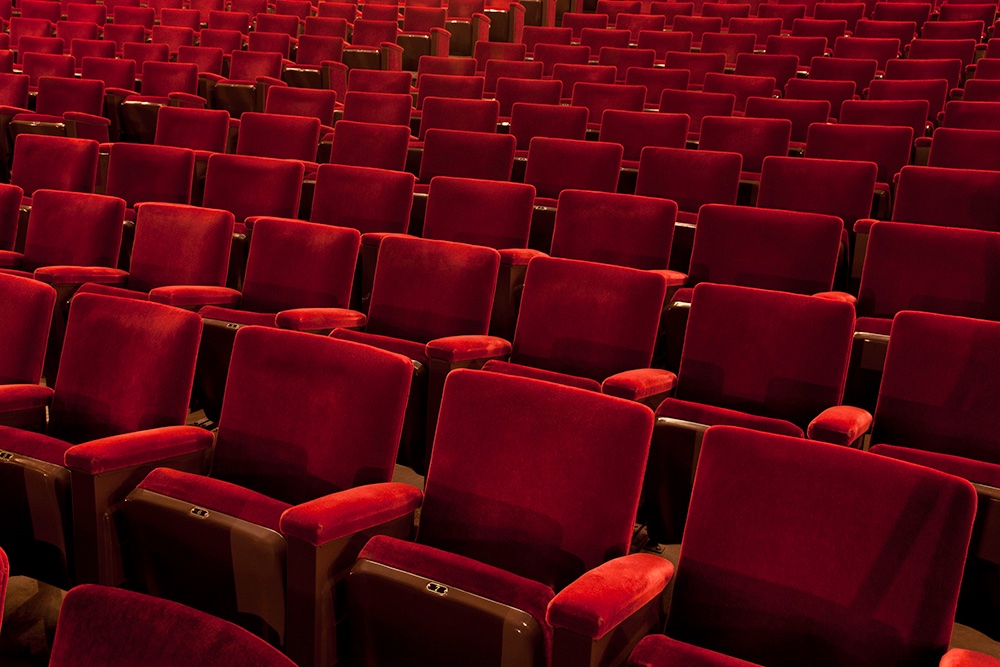This article is in The Spectator’s February 2020 US edition. Subscribe here.
Sir Tom Stoppard is Britain’s — perhaps the world’s — leading playwright. He was born Tomas Straussler in 1937 in Zlin, Czechoslovakia, which his family left as the German army moved in. The Strausslers were Jewish. In adulthood he learned that all four of his grandparents had been killed by the Nazis. His father was killed by the Japanese on a boat out of Singapore as he tried to rejoin his wife and two sons in Australia. In India his mother married again, to an English army officer who gave his stepchildren his last name.
Stoppard has lifted the lid on his early life only once before, in a 1999 piece for Talk magazine. He said there that in the 1990s, following his mother’s death, his stepfather asked him to stop using his name after feeling some imagined ingratitude in his famous stepson. ‘Don’t you realize I made you British?’ seemed to be his resentful message.
Today, at the age of 82, Stoppard lives in an old rectory in the south of England with his third wife, Sabrina Guinness, whom he married in 2014. After lunch together in the kitchen and a walk around the rectory gardens, the famously private author agrees to talk about his life and work, including his new play, Leopoldstadt, which opened in London at the end of January.
We talk in the drawing room with a log fire roaring beside us. In his still unmistakable Mitteleuropean drawl he explains that the right subject for a play ‘is not that easy to find’. Perhaps it is only now, towards the end, that Stoppard feels ready to go back to the world which produced him?
‘This one actually was hiding in plain sight. I’d been circling it for quite a long time without quite admitting that I was writing a play about it. It’s a Jewish family — 1900 to 1955 — and the main reason that they’re Viennese is that the latter part of the play impinges on my own experience, this mental experience, and I didn’t want it to be about me because it wasn’t supposed to be about me. But it was about… yes, it was about part of myself.’
He speaks slowly, carefully, constantly turning over and self-correcting his words as he caresses and then smokes the first of a steady stream of cigarettes. ‘But it was so much more than that. It would have been confusing if I’d said, “Well here’s this young man — or old man — born in Zlin in 1937”, and so forth. So to get away from all of that I made them Viennese, which was all well and good up to a point and then, when it began to kind of cross the frontier into something more individually personal, I had to shift my feet because I came to England when I was eight, and ultimately this play ends up with somebody who was a bit older than me and came to England speaking only German, whereas I spoke English by the time I came to England. So there’s just a scrap of me towards the end of the play.’
There is a quote from the 19th-century Russian critic Vissarion Belinsky, who features in The Coast of Utopia, Stoppard’s dramatic trilogy from 2002 — essentially, where does the poet go at that moment of pause, before his pen starts up again?
‘I know more than is good for me now about synapses and lobes and gray matter and that whole stuff that I got to know about quite thoroughly for The Hard Problem [his 2015 play about the problem of consciousness]. So I imagine that, in a sort of sense, I know what happens materially. But as far as where the immaterial part of it goes, not only do I not know but it is necessary not to know. It’s a belief in a metaphysical dimension which operates really almost on every side of my life and I believe in it and depend upon it.’

Like a lot of the foundations of Stoppard’s mind, there are depths that appear slightly at odds with the assumptions of the age. For instance, this age doesn’t like to talk about inspiration.
‘It’s interesting that you know the difference between having written something which is OK and something which isn’t. But actually explaining or analyzing what the difference is is very difficult. But there’s no question that you know the difference. The luckiness comes from not being in complete control of what’s going to come off the end of your fountain pen. You can’t guarantee it. You can’t guarantee that because it happened yesterday it will happen today. And now that I revel in being an octogenarian, I expect it to stop. I was nervous that it would just stop before I finished Leopoldstadt.’
It is not false humility. He talks repeatedly about his diminishing physical strength. Yet he still works incredibly hard. ‘I don’t work as hard as I used to, because the physical limit is different nowadays. I used to work two shifts a day very happily. But not only are my body and my brain older, but I used to live on my own. Until Sabrina and I were living together, I’d lived on my own for 20 years I think.’
But clearly the mental energy a writer needs is still there? ‘Yes, for shorter bursts.’ And are there not advantages that he has in his eighties? Things that he couldn’t do as a younger writer? He seems surprised at the idea. ‘Have you got any advantages in mind?’ ‘Wisdom?’ I suggest. There is a magus-like quality about Stoppard, and it is impossible not to want to tap into it.
‘Well, you know, like everybody I live a sort of double life,’ he says with a glint. ‘I’m furtively competitive, which is one of the things that made me want to keep writing.’ Whenever a piece of the shard within him is revealed like this, he immediately covers for himself. With whom does he feel himself to be competing?
He won’t name names. ‘I wasn’t thinking in that way. There was a wonderful thing [the British race-car driver] Stirling Moss said. He said, “You don’t get a big bang out of going round the track at 180 miles an hour. No, it’s all about taking an 80-mile-an-hour corner at 81 and then you think: there, you bastards, match that.” And I sort of felt a complete, shameful empathy with him.’
So does the 82-year-old playwright know when he’s taken an 80 corner at 81? ‘Sort of, yes. I mean, you could be wrong but you think you know, yes. It’s very hard to make judgments abreast of what you’re judging. I make no assumptions of how things will look in the future. Reputations rise and fall. Even in your lifetime, let alone mine, there are painters and writers who’ve been hit by the sunbeam and then the sunbeam moves on.’ He quotes the phrase ‘What has posterity done for me?’ –– but acknowledges that he feels differently.
‘I aspire to write for posterity. I would like my plays to be done occasionally, not just be done when they’re brand new. I like the idea of them being part of the furniture. Which of course isn’t true of all of them. You’re just lucky if you have one or two which are there.’ The sun has shone on his own work an awful lot, hasn’t it? ‘It’s too soon to tell. But yes, you’re right.’ Has he ever felt the critical consensus has been wrong?
‘The Coast of Utopia was more successful the second time, in New York, than the first time [in London]. You learn from the first time and I learned a lot. The first time around, to be honest, we didn’t have enough rehearsal time. But more to the point perhaps is that, between the two productions, I took 15 minutes out of each play, so instead of being a nine-hour epic it was an eight-hour epic, and that’s a crucial difference.’
But these are technical aspects. What would happen if the older Stoppard were to get a chance to speak with his younger self? The drawbridge politely but firmly comes up. ‘Well, obviously not to be taken personally, but I think “just say no” essentially about talking about it. Delivering yourself of opinions of any kind is somehow robbing your own pantry.’ Stoppard has been warier than any other writer of raiding that pantry for anything other than his plays. He seems to have a deep need to keep everything inside, turning it over where it is useful and letting things out only as finished products.

He is still a self-confessed ‘junkie’ when it comes to newsprint. ‘I get up and I read the Guardian and the [London] Times, and if it’s Friday I have either the Times Literary Supplement or The Spectator.’ He tells himself that he’s looking out for the next idea, but really, ‘It’s partly from coming out of journalism and really loving it, and partly because I’m a natural fan. I want to know who is writing this novel or that biography. I’ve got an appetite for knowing what the next wavelet of culture has brought ashore. I don’t know why. I meet people — as a general rule nearly all the people I know don’t read what I read — and I think, “What a strange way to live, what you don’t seem to know about.” It’s kind of like, how can you not know about The Madness of Crowds? It’s actually the book I’ve just finished. You can’t just not read these books, not know about them. The answer maybe is that you can, in the sense that everything percolates through, finally. So what is it? I get a little thrill every time there’s a new issue of something.
‘My life at the moment, and for some time past, has been very happy, and strangely the sense of gravity of that is not so much having something to write and writing it. It’s the fact that every day ends the same way. It ends with me in bed, Sabrina asleep, and I’m reading whatever I’m reading until half past one, sometimes two o’clock.’
Where else does that mental searching go? When his last play, The Hard Problem, came out, some people thought that he was leaving the door open for religion — or at least prayer. He is keen to correct some misapprehensions about it. ‘The play ultimately wants to say that reductionism just won’t do as a final answer. There’s too much in one’s life which doesn’t fit with that. You know. We all have private experience. I’m thinking of things like grief, for example, which people explain as a biological response, and I’ve never felt that was explanation enough for sorrow, or love, or mother-love. Scientific investigation has this strange internal contradiction, which is that it doesn’t need you to find it out, so why are you finding it out?’
So he is a skeptic of the scientific age?
‘Yes — a skeptic of the expert explanation, the sort of complete lack of self-doubt: the total self-certainty and dogmatism of the proponents. I mean your friend Sam Harris would be an example. I’ve never really read him but I’ve read a bit of him here and there, and I remember thinking of him in much the same way as I think of Richard Dawkins, who I find very agreeable company too, that there’s something discourteous about claiming 100 percent of the terrain, just nothing else to say from any other quarter. Somebody said about Macaulay, “I wish I knew as much about anything as Tom knows about everything.”’
As the light fails and the fire flickers down, our conversation roams over the many other things that cluster in Stoppard’s mind. He is worried about the constant encroachment on liberty (‘I think it’s been encroached upon my whole life’). And talking of the internet, he says: ‘I can’t think of anything in history which turned out to be as bad an idea as it turns out to be, contrary to all expectation of it being a wonderful thing.’
He thinks there is a big play to be written on capitalism and the City of London. ‘I think a lot of what I think of as being criminal behavior is done by people who don’t consider themselves to be criminals at all. I think the artist’s job partly is to remind us of what’s fair, but in moral terms.’ But he worries that he doesn’t have the time and energy to do the research into the big problem that capitalism currently presents. What about one of his other ideas? He has all the paperwork upstairs to write a play about the press and has been thinking about that ‘from long before Leopoldstadt and long before The Hard Problem’.
Of Europe, he says: ‘You know, in 1989-90 I thought I had lived to see the good times in European history.’ Fukuyama and all that. ‘And it seemed to last about ten minutes before another fault line arrived under our feet.’ He talks about the floods in Venice, the fires in Australia, and Islamism, which ‘won’t go away’: ‘That particular tectonic plate between Islam and everybody else. I don’t know. It’s like a fight to the death, the way it looks now.’
Despite following things with extraordinary care, he has always managed to maintain a stance above politics. Is it deliberate? ‘I think of theater as being the commentary on life.’ He has said before that if you want to change something by next month you need to work on a newspaper or a television documentary, whereas ‘the job for an artist is to lay down the moral matrix for having that urge — for making that urge intelligible. The artist has the job of making morality clear but not necessarily the strategy.’
The sun has gone down outside, and as the two of us sit opposite each other by the dying fire I feel compelled to ask him who he misses. He dodges the question for a while, then admits that he misses the theater critic Ken Tynan — misses reading him. And ‘I’ve dodged your question because I was ashamed of my answer. I don’t actually miss anybody’ ‘in a strange sense I miss people I’ve never known’. Philip Larkin, for instance, whom ‘I did meet once or twice’, including at a party at No. 10 Downing Street.
We talk about Larkin for a bit and after a while he stops himself. And then: ‘I’ve dodged your question because I was ashamed of my answer. I don’t actually miss anybody.’ There are more exhalations of cigarette smoke. Then he stops again. Something has caught him. ‘I miss my mother. But that’s not what you meant, or maybe it was what you meant. Yes, I just loved my mother. She was a very touching, sort of brave sort of person, but very timid, very nervous and once or twice in my youth I’d get infuriated by her and part from her in this awful way. And although she lived for many years after that, so it was OK, I still think of one or two of those occasions. One was at the railway station. I just think of them with terrible regret that I allowed it to happen.’
As the evening draws in, his thoughts have brought him back again to the start. The young boy from Zlin, about to be lent a name that he would make famous throughout the world.
Leopoldstadt opened this weekend at Wyndham’s Theatre, London. This article is in The Spectator’s February 2020 US edition. Subscribe here.



